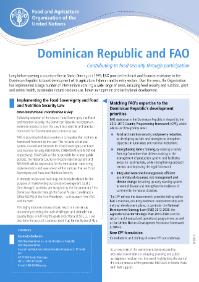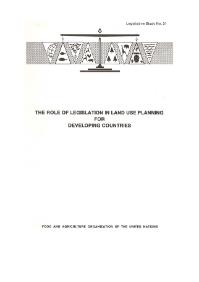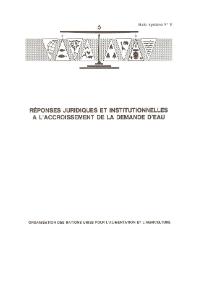Focal point
Location
The Food and Agriculture Organization of the United Nations leads international efforts to defeat hunger. Serving both developed and developing countries, FAO acts as a neutral forum where all nations meet as equals to negotiate agreements and debate policy. FAO is also a source of knowledge and information. We help developing countries and countries in transition modernize and improve agriculture, forestry and fisheries practices and ensure good nutrition for all. Since our founding in 1945, we have focused special attention on developing rural areas, home to 70 percent of the world's poor and hungry people.
Members:
Resources
Displaying 151 - 155 of 5073Dominican Republic and FAO
Long before opening a country office in Santo Domingo in 1979, FAO provided technical and financial assistance to the Dominican Republic to boost development of its agriculture, fisheries and forestry sectors. Over the years, the Organization has implemented a large number of interventions covering a wide range of areas, including food security and nutrition, plant and animal health, sustainable natural resource use, forest management and institutional development.
Creating a system to record tenure rights and first registration
This guide is about extending the recording or registration of tenure rights to people who currently are not served by systems to record their rights. It provides practical advice on ways to introduce a new system to record tenure rights and for the recording of rights for the first time by the state, a process that is sometimes called first registration.
The role of legislation in land use planning for developing countries
The present study, by the Chief of the Agrarian and Water Law Section of the FAO Legislation Branch, is intended to explore in greater depth the value of legislation to the land use planning process. It is, on the one hand, an exploration of the ways in which legislation serves to provide the structural underpinnings for and connections between the technical disciplines which have long been associated with the land use planning effort.
Réponses juridiques et institutionnelles à l'accroissement de la demande d'eau
La FAO a soumis ft titre de contribution ft la Conférence des Nations Unies sur l'eau un document de base intitulé "L'eau pour l'agriculture" (DOC. E/CONF. 70/11). Ce document passe en revue les aspects techniques, économiques et sociaux de l'eau en agriculture et propose un programme d'action pour augmenter la production alimentaire.
Standardizing land cover mapping for tsetse and trypanosomiasis decision making
The habitat of tsetse fly (Glossina spp.) depends upon climatic conditions, host availability and land cover characteristics. In this paper, the Land Cover Classification System (LCCS), developed by the Food and Agriculture Organization (FAO) and the United Nations Environment Programme (UNEP), is proposed as a tool to harmonize land cover mapping exercises carried out in the context of tsetse and trypanosomiasis (T&T) research and control.











